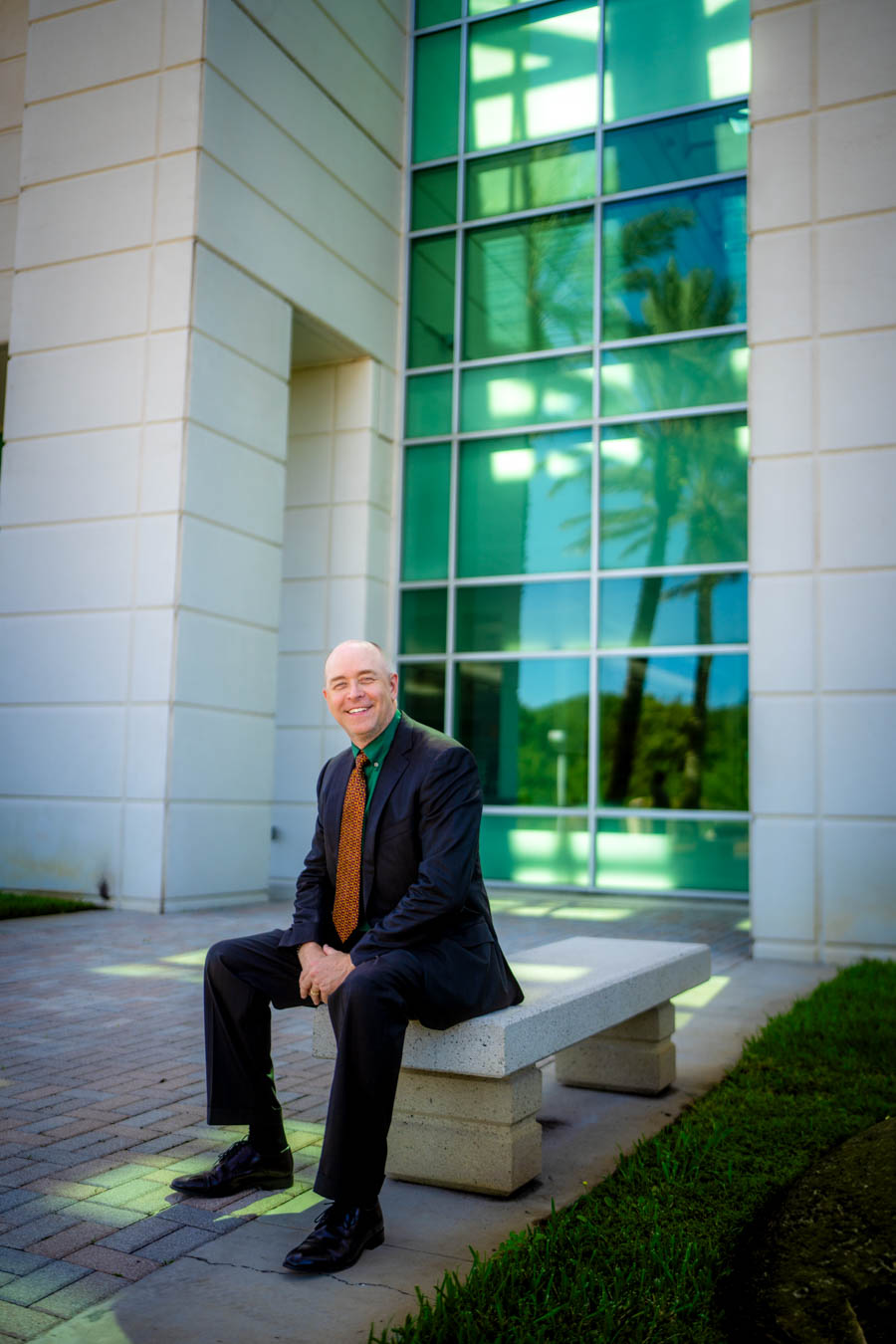“I had a curious interest in medicine from the very beginning as a kid,” says Dr. Mark Kauffman. “When someone was hurt or bleeding it never shocked me or made me feel intimidated. I always went forward and wanted to help other people so that was kind of built into me. My dad always said that he never saw somebody at five-years-old say that they wanted to be a physician and never really change that their entire life.
“I was actually born with a medical segment in my DNA,” he adds with a laugh. Kauffman is the Associate Dean of Academic Affairs at the Bradenton campus of Lake Erie College of Osteopathic Medicine (LECOM). The original LECOM campus was established in Erie, Pennsylvania where the charter class began in August of 1993. Kauffman was part of the fourth matriculating class. “I came from a financially-challenged family and none of my family had ever gone to college. And I thought you had to be a genius to be a physician,” Kauffman says. “So I was concerned about that, because if I never would get into medical school and medicine was in my blood what else could I do to still be in medicine?”
Kauffman’s father was in the military and he asked his son if he’d ever heard of a physician’s assistant (PA). These mid-level practitioners emerged as a profession in the mid-1960s in the United States to address a shortage of primary care physicians and to improve healthcare access in underserved areas. The military played a large role in developing the profession, as experienced military medics were ideal candidates for early PA programs. Kauffman did become a PA and went on to work in that role for six years in the field of pediatric transplant surgery at the Children’s Hospital of Pittsburgh, but he always planned to go back to medical school one day. He continued to take additional courses and then applied to LECOM which was still a fledgling school at the time.
“They gave me a chance,” Kauffman says. “And that’s how I ended up with my DO degree and the rest of my career.”
A DO, or Doctor of Osteopathic Medicine, is a fully-licensed physician that is trained to perform all the tasks that MDs (Doctors of Medicine) do. This includes diagnosing and treating illnesses, prescribing medications and performing surgeries. But there are some differences in training and philosophy.
“Osteopathic medicine was developed in 1874 by an MD. His name was Andrew Taylor Still and he had a personal tragedy in his family with meningitis. At that time, traditional medicine was still using bleeding as a method of treatment and poisonous compounds like arsenic and mercury to treat patients,” Kauffman explains. “Still lost his wife and children to that crisis and that’s when he started saying there’s something different that we can do in medicine that’s more hands-on. He started to study anatomy and what the body can do for itself and he came up with some tenets that said that structure and function are interrelated. The body has an inherent ability to heal itself, but sometimes it needs some help.”
That help comes in the form of osteopathic manipulation, a hands-on technique used to diagnose, treat and prevent illness or injury. This practice involves using the hands to gently move muscles and joints.
“Our curriculum is the same as MD programs, but we also add manipulation onto that,” says Kauffman. “The second thing that’s always said is that DOs are more holistic or humanistic, which is something that I really don’t like to say because every physician should be humanistic— our caring of a patient is a very important, vital part of our profession. But we do teach a lot of mind, body and spirit. You have to treat the entire person to have healing, not just the diagnosis.”
LECOM offers an extensive array of programs. In addition to the College of Osteopathic Medicine, the Bradenton campus offers a School of Pharmacy, School of Dental Medicine, School of Health Services Administration and Graduate School of Biomedical Sciences as well as opportunities for post-graduate education. Dr. Kauffmann took a less conventional route to becoming a medical doctor, and LECOM still affords that opportunity to students. Both the Erie and Bradenton campuses offer a Master of Medical Science program with a rigorous curriculum that allows students without the highest GPAs or MCATs to demonstrate that they have the capability to qualify for doctoral level studies. LECOM also works to keep their tuition as low as possible, both to make their program more accessible, and to allow their students the opportunity to pursue less lucrative fields like primary care and family medicine which are facing overwhelming shortages.
“One of the questions I often get as the Dean is why am I still here after all these years, coming up on three decades?” Kauffman says. “As a student, one of the things that always impressed me was that they always asked for our opinion. The reason they did that was because they wanted to improve. It’s always a culture of improvement. Them always asking what can we do differently, how can we be better—that’s never changed over thirty years. I still sit with my students today and ask them what was good and what could be better? The end result is that the patient they just walked out of the room from, whether they’re a dentist or pharmacist or physician or healthcare administrator—that patient should have just been seen by one of the best providers in the world. To do that, you have to give them the curriculum and the environment to be able to get to that level. That’s my personal goal, is that everybody who walks out of the door at LECOM is proud to have been part of this institution.”
LECOM Bradenton Campus, 5000 Lakewood Ranch Blvd. Bradenton, 941-756-0690, lecom.edu/communities/bradenton










